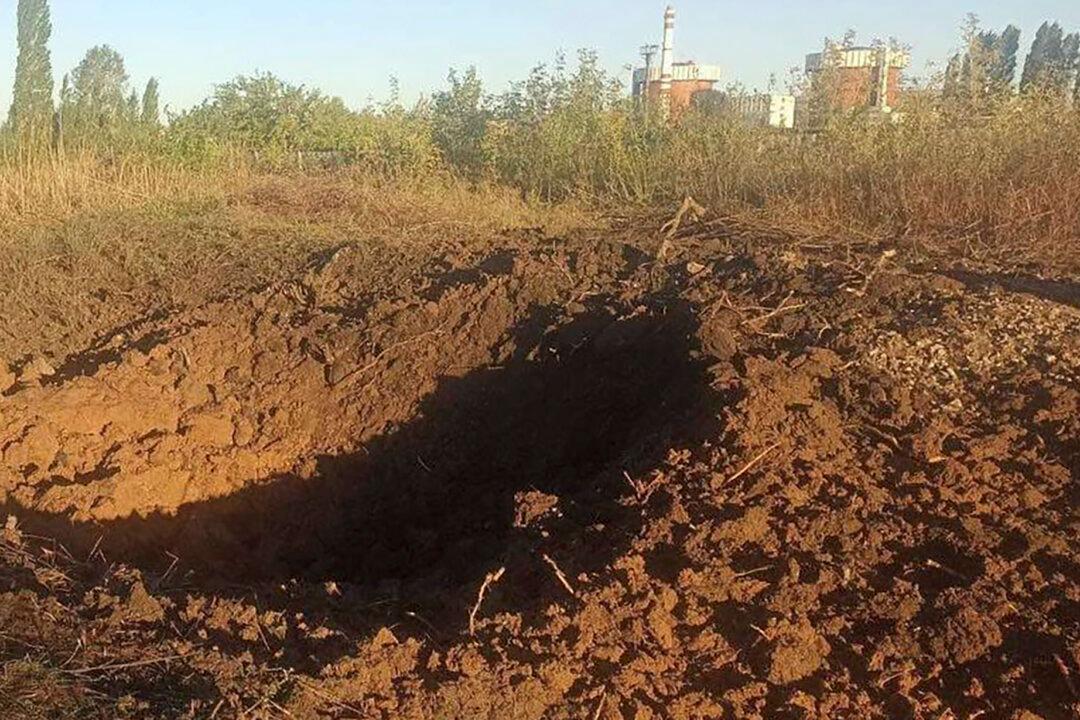KYIV, Ukraine—A Russian missile blasted a crater close to a nuclear power plant in southern Ukraine on Monday, damaging nearby industrial equipment but not hitting its three reactors, Ukrainian nuclear operator Energoatom said.
The missile struck within 300 meters (328 yards) of the reactors at the South Ukraine Nuclear Power Plant near the city of Yuzhnoukrainsk in Mykolaiv province, leaving a hole 2 meters (6 1/2 feet) deep and 4 meters (13 feet) wide, according to Energoatom.





